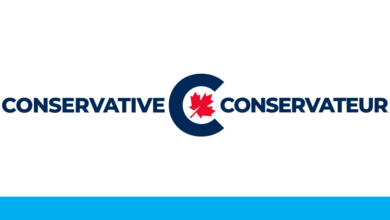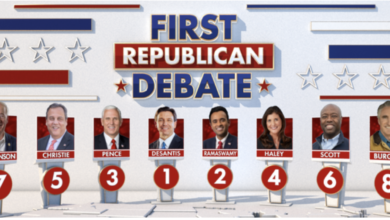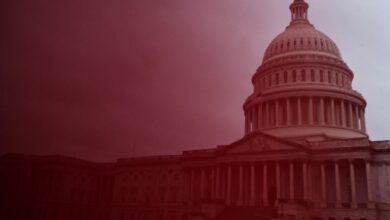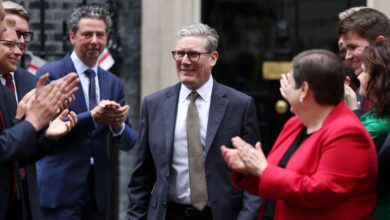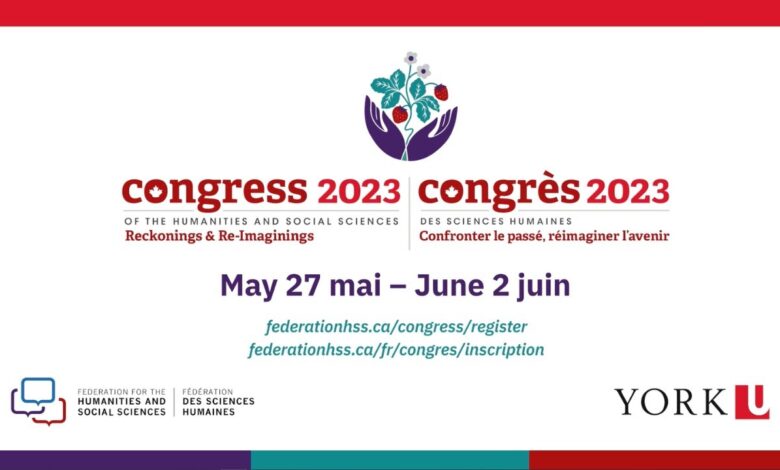
What Do Republicans Have Planned for the Next Congress?
What Do Republicans Have Planned for the Next Congress? That’s the burning question on many minds as the next session approaches. This post dives deep into the GOP’s anticipated legislative agenda, exploring their key policy positions, economic proposals, and stances on social and cultural issues. We’ll unpack their priorities, potential strategies, and the likely hurdles they’ll face along the way.
Get ready for a fascinating look into the future of American politics!
From their core tenets and platform review to their proposed economic policies and foreign affairs strategies, we’ll analyze the Republican party’s vision for the upcoming congress. We’ll examine their plans for taxation, spending, and regulation, comparing their approach to the Democrats’ and considering the potential consequences of their actions. We’ll also delve into their positions on social and cultural issues, anticipating the public’s reaction and potential political fallout.
This is more than just policy analysis; it’s a look at the potential trajectory of the nation.
Republican Party Platform
The Republican Party platform, while evolving over time, centers on core tenets of limited government, individual liberty, and free markets. These principles inform their policy positions and shape their legislative agenda in Congress. Understanding the current platform requires examining its key components and comparing them to previous iterations to identify both continuities and significant shifts in emphasis.
Core Tenets of the Republican Platform
The Republican Party’s platform is built upon a foundation of conservative principles. Key tenets include a strong national defense, fiscal conservatism emphasizing lower taxes and reduced government spending, a belief in individual responsibility and limited government intervention in social and economic affairs, and a commitment to free markets and deregulation. While specific policy proposals may vary depending on the political climate and the priorities of the party leadership, these core tenets remain relatively consistent.
Key Policy Positions Shaping the Legislative Agenda
Several key policy positions are likely to dominate the Republican legislative agenda in the next Congress. These include tax cuts, particularly for corporations and high-income earners; deregulation across various sectors of the economy; reforms to the healthcare system aimed at repealing or replacing the Affordable Care Act; and increased spending on national defense. These priorities often reflect the party’s commitment to fiscal conservatism, limited government, and a strong national defense.
However, the extent to which these policies are enacted will depend on factors such as the composition of Congress and the President’s agenda.
Comparison with Previous Platforms: Continuities and Shifts
Comparing the current Republican platform with previous iterations reveals both significant continuities and notable shifts. The emphasis on limited government, free markets, and individual responsibility has remained a constant throughout much of the party’s history. However, the specific policy proposals aimed at achieving these goals have evolved. For example, while tax cuts have always been a central feature of the Republican platform, the scale and scope of proposed cuts have varied significantly depending on the economic climate and the prevailing political winds.
Similarly, the party’s stance on social issues has seen shifts, with a greater emphasis on certain social conservative positions in recent years.
So, what do Republicans have planned for the next Congress? A lot of focus seems to be on fiscal conservatism and potentially rolling back some social programs, but it’s hard to say for sure. It’s interesting to consider this in light of global trends, like what’s happening in Austria, where, as reported in this article, Austria’s xenophobic right edges towards victory.
Seeing similar nationalist sentiments rise elsewhere makes me wonder if these global shifts will influence the Republican agenda in any way.
Republican Policy Positions: A Summary Table
| Policy Area | Specific Policy | Rationale | Potential Impact |
|---|---|---|---|
| Taxation | Significant tax cuts for corporations and high-income earners | Stimulate economic growth by encouraging investment and job creation. | Increased national debt, potential widening of income inequality, possible economic growth but with uncertain distribution of benefits. |
| Healthcare | Repeal or replacement of the Affordable Care Act | Reduce government intervention in healthcare, lower costs, increase market competition. | Increased number of uninsured individuals, potential rise in healthcare costs for some, potential increase in market competition but with uncertain effects on access and affordability. |
| Regulation | Deregulation across various sectors | Reduce the burden on businesses, stimulate economic growth, foster innovation. | Potential environmental damage, increased risk in certain industries, potential economic growth but with increased risk and uncertain environmental consequences. |
| National Defense | Increased military spending | Strengthen national security, project American power globally. | Increased national debt, potential for military intervention in international conflicts, potential increase in national security but with increased financial burden and potential for international conflict. |
Legislative Priorities for the Next Congress
With Republicans potentially controlling both chambers of Congress following the 2024 elections, their legislative agenda is expected to be ambitious. While the specifics will depend on the composition of the new Congress and the ongoing political climate, certain priorities are likely to dominate the Republican agenda. These priorities reflect key themes from the Republican Party Platform and respond to what Republicans perceive as the failures of the current administration.
Tax Cuts and Economic Growth
Republicans are likely to prioritize significant tax cuts, aiming to stimulate economic growth and reduce the burden on businesses and individuals. The rationale is rooted in supply-side economics – the belief that lower taxes incentivize investment, job creation, and ultimately, higher economic output. This approach, however, has been debated extensively, with critics arguing that tax cuts disproportionately benefit the wealthy and may exacerbate income inequality.
To advance this agenda, Republicans might leverage reconciliation, a procedural maneuver allowing passage of certain legislation with a simple majority in the Senate, bypassing the filibuster. However, the effectiveness of this strategy depends on the party’s unity and the willingness of moderate Republicans to support substantial tax cuts. A successful strategy would also involve framing the tax cuts as benefiting the middle class and promoting economic opportunity for all.
Government Spending and Debt Reduction
A second major priority will likely be controlling government spending and reducing the national debt. Republicans consistently argue that excessive government spending is unsustainable and harms long-term economic stability. They are expected to propose measures to curb spending in various areas, including social programs and regulations. The anticipated benefit is a more fiscally responsible government and a reduction in the national debt, though this goal faces considerable challenges.
Reaching bipartisan consensus on spending cuts is notoriously difficult, especially in an era of polarized politics. Strategies for achieving this goal might include targeted spending cuts, negotiations with Democrats, and the use of budget reconciliation to overcome potential Senate gridlock.
Energy and Environmental Policy
Republicans are expected to pursue policies aimed at promoting domestic energy production and reducing reliance on foreign sources. The rationale is to enhance energy independence, create jobs in the energy sector, and lower energy prices for consumers. This likely includes deregulation of the energy sector, increased investment in fossil fuels, and a potential rollback of environmental regulations. This priority, however, is likely to face significant opposition from Democrats and environmental groups who argue that it could exacerbate climate change.
The potential strategies Republicans might employ include prioritizing legislation favorable to the energy industry, emphasizing the economic benefits of domestic energy production, and potentially using reconciliation to overcome Senate opposition.
- Potential Obstacles and Roadblocks:
- Narrow Margins in Congress: Even with control of both chambers, Republicans may face challenges passing legislation due to narrow margins, requiring significant internal unity and potentially necessitating compromise with moderate members.
- Bipartisan Opposition: Many of the Republicans’ priorities, such as tax cuts and deregulation, are likely to face strong opposition from Democrats, necessitating significant negotiation and compromise to achieve legislative success.
- Economic Uncertainty: Unforeseen economic events could impact the feasibility and political viability of certain legislative priorities.
- Public Opinion: Shifting public opinion on key issues could affect the political support for Republican legislative initiatives.
- Presidential Vetoes: If the Presidency remains in Democratic hands, the potential for presidential vetoes represents a major obstacle to the Republican agenda.
Economic Policy Proposals: What Do Republicans Have Planned For The Next Congress
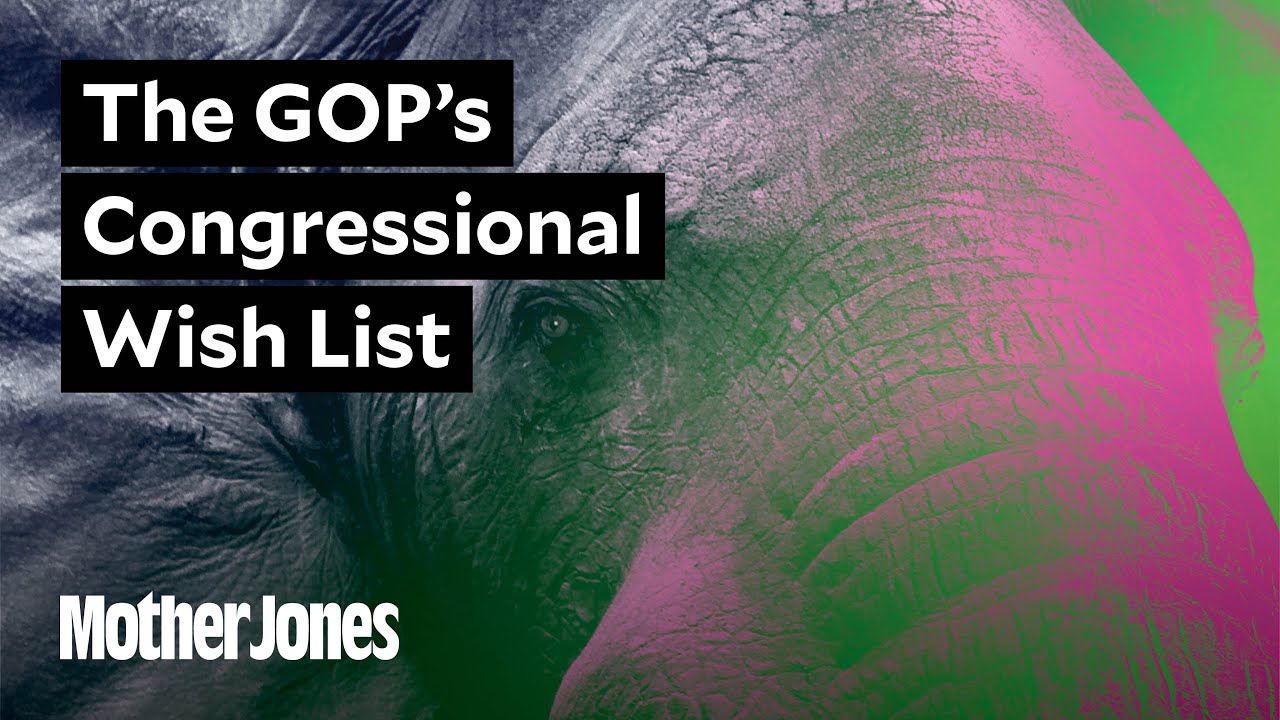
The Republican Party’s economic platform for the upcoming Congress centers on several key tenets: reducing the size and scope of government, promoting free markets, and fostering economic growth through tax cuts and deregulation. This contrasts sharply with the Democrats’ focus on social safety nets, government investment in infrastructure and clean energy, and a more active role for the federal government in regulating the economy.
The success or failure of the Republican plan will depend heavily on its ability to stimulate private sector investment and job creation while managing potential inflationary pressures.
So, what do Republicans have planned for the next Congress? A big focus seems to be on rolling back what they see as overreach by the federal government, which brings me to a crucial point: the fight against what many consider the bureaucratic erasure of culture, identity, and freedom. This perceived threat is a major driver of their agenda, influencing their plans for everything from education reform to regulatory changes.
Ultimately, how they tackle this issue will heavily shape their legislative priorities.
Taxation Plans
The Republican Party generally advocates for lower taxes across the board, believing this will incentivize investment, job creation, and economic growth. Specific proposals often include reducing corporate tax rates, simplifying the individual income tax system (potentially through a flat tax or significant tax bracket reductions), and eliminating or reducing certain deductions and credits. This contrasts with the Democratic Party’s tendency to favor progressive taxation, where higher earners pay a larger percentage of their income in taxes, often to fund social programs and address income inequality.
A significant difference lies in how each party approaches tax loopholes and deductions; Republicans often aim to simplify the tax code by eliminating loopholes, while Democrats may advocate for targeted deductions to benefit specific groups or promote certain behaviors (like investing in renewable energy). For example, a Republican plan might aim to lower the corporate tax rate from 21% to 15%, while a Democratic counter-proposal might focus on increasing taxes on capital gains for high-income earners to fund infrastructure projects.
Government Spending Proposals
Republican proposals for government spending typically emphasize fiscal conservatism and a balanced budget. They often prioritize spending on defense and national security while advocating for cuts in non-defense discretionary spending. This approach differs from the Democratic Party’s tendency to support higher levels of government spending on social programs, infrastructure, and education. A key point of contention is often the level of government debt; Republicans generally favor reducing the national debt through spending cuts and economic growth, while Democrats may be more willing to accept higher levels of debt to fund investments they believe will yield long-term economic benefits.
For instance, a Republican plan might propose reducing funding for certain social programs to balance the budget, whereas a Democratic plan might advocate for increased infrastructure spending financed through borrowing, arguing that the resulting economic growth will offset the increased debt.
Economic Regulation Proposals
Republicans generally favor deregulation, believing that less government intervention leads to greater economic efficiency and innovation. This approach includes reducing environmental regulations, easing restrictions on businesses, and limiting the power of government agencies. In contrast, Democrats tend to support a more active role for government in regulating the economy, particularly in areas such as environmental protection, consumer safety, and financial stability.
A key difference lies in the approach to antitrust enforcement; Republicans may favor a more lenient approach, while Democrats may advocate for stronger enforcement to prevent monopolies and promote competition. For example, a Republican administration might roll back environmental regulations to reduce costs for businesses, while a Democratic administration might strengthen financial regulations to prevent another financial crisis.
So, what do Republicans have planned for the next Congress? A big part of their strategy likely involves flipping Senate seats, and a key battleground is New Hampshire. This is where the race heats up, as you can see from this article about a retired general advancing to battle incumbent Hassan for the US Senate seat.
This race will be crucial in determining whether Republicans can achieve their legislative goals in the next session.
Potential Economic Consequences of Republican Economic Plan
Implementing a Republican economic plan, with its emphasis on tax cuts and deregulation, could lead to several potential economic consequences. One possible outcome is increased economic growth fueled by increased private investment and consumer spending due to lower taxes. However, this could also lead to increased inflation if demand outpaces supply. Another potential consequence is a widening income gap, as tax cuts disproportionately benefit higher-income earners.
On the other hand, reduced regulation could stimulate innovation and job creation, but it could also lead to environmental damage and increased inequality if not properly managed. A scenario similar to the Reagan-era tax cuts could be envisioned, where initial growth is followed by increased inequality and a rise in the national debt if not accompanied by responsible spending policies.
Conversely, a scenario resembling the 2001 tax cuts could unfold, where the projected economic stimulus may not fully materialize, leading to a disappointing outcome. Analyzing the potential consequences requires considering the specific details of the proposed policies and their interaction with broader economic factors.
Social and Cultural Issues
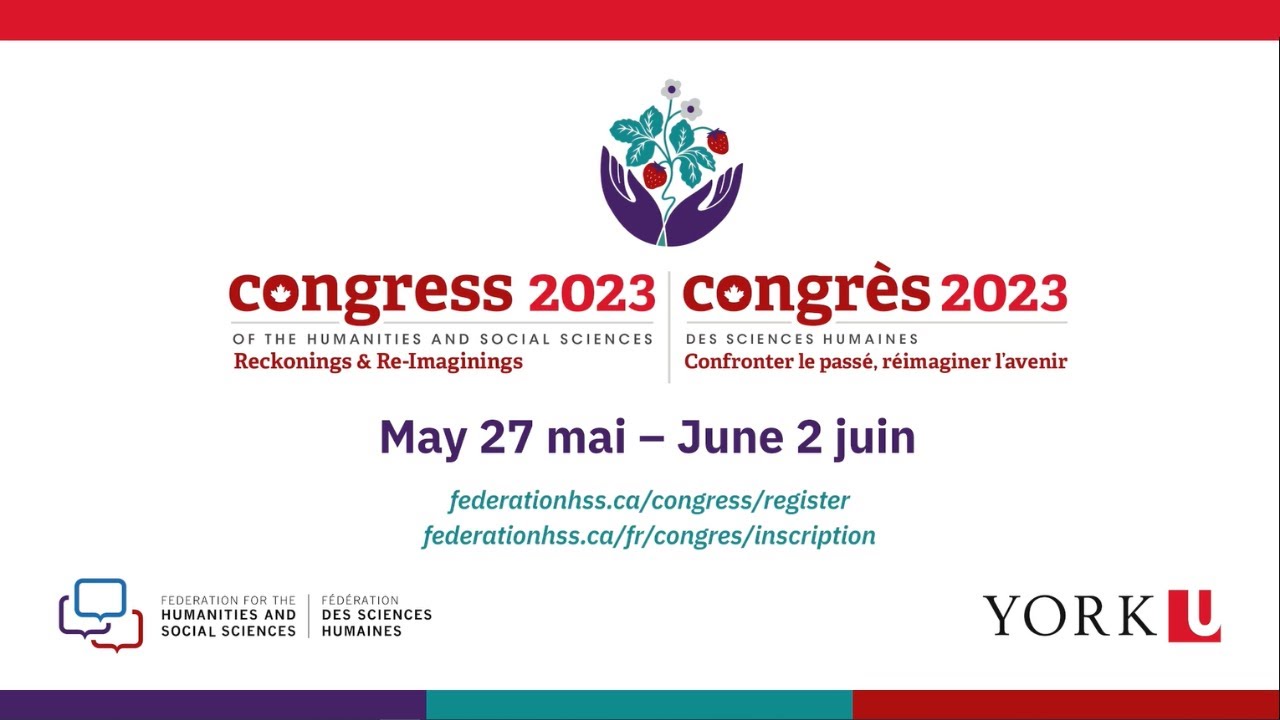
The Republican Party’s platform on social and cultural issues is generally characterized by a conservative approach emphasizing traditional values and limited government intervention. The upcoming Congress will likely see renewed efforts to advance their agenda on several key fronts, potentially leading to significant political and societal shifts. These issues are highly divisive, generating strong reactions from both supporters and opponents.
The Republican Party’s legislative priorities in this area are expected to center on issues of abortion, LGBTQ+ rights, and education. The party’s stance on these issues is often viewed as a key factor influencing voter turnout and shaping the political landscape.
Abortion Restrictions
Republicans are expected to continue pushing for stricter abortion laws at the federal level. This could involve efforts to ban or severely restrict abortion access nationwide, potentially overturning or modifying existing precedents like Roe v. Wade. Legislative actions might include passing federal “heartbeat bills,” enacting stricter regulations on abortion providers, or defunding organizations that provide abortion services. The anticipated public reaction is likely to be highly polarized, with pro-choice advocates staging protests and legal challenges, while pro-life groups celebrate any legislative victories.
The political consequences could include increased voter mobilization on both sides, potentially shifting electoral outcomes in key races. For example, the 2022 midterm elections showed a surge in voter turnout among Democrats following the overturning of Roe v. Wade, suggesting that abortion rights remain a powerful motivator for voters.
LGBTQ+ Rights Legislation
The Republican Party’s approach to LGBTQ+ rights has become increasingly conservative in recent years. Potential legislative actions could include restrictions on transgender rights, particularly in areas such as sports participation, bathroom access, and healthcare. Efforts to limit same-sex marriage rights or restrict LGBTQ+ adoption could also be pursued. Public reaction to such legislation would likely be strong, with LGBTQ+ advocacy groups and their allies organizing widespread resistance.
The political consequences could involve a backlash from younger voters and a growing divide within the Republican Party itself, as some members advocate for more inclusive policies. The success of these legislative efforts will depend heavily on the composition of Congress and the willingness of Republican lawmakers to prioritize these issues.
Education Policy Changes
Republicans are likely to focus on issues related to curriculum control, parental rights in education, and school choice. This could involve legislation aimed at restricting the teaching of certain topics, such as critical race theory or gender identity, in public schools. Increased emphasis on parental involvement in curriculum decisions and expanded school choice programs, including the use of vouchers, are also likely priorities.
The anticipated public reaction will likely be diverse, with some parents and community groups supporting these changes while others express concerns about censorship and the potential for increased inequality in education. The political consequences could involve a further polarization of the education debate, with ongoing legal challenges and potential shifts in voter support based on individual viewpoints on these issues.
The debate around school choice, for instance, has been a recurring theme in American politics, with proponents emphasizing parental autonomy and opponents highlighting concerns about equity and resource allocation.
Societal Impact: A Visual Representation, What do republicans have planned for the next congress
Imagine a three-panel image. The first panel depicts a diverse group of people engaged in peaceful protest, representing the activism and opposition to restrictive legislation. The second panel shows a courtroom scene, symbolizing the legal battles and challenges to these policies. The third panel illustrates a divided community, with some individuals embracing the changes while others feel marginalized and excluded, highlighting the potential for social fracturing.
This illustrates the complex and multifaceted nature of the societal impact of these policies.
Foreign and Defense Policy
The Republican Party’s approach to foreign and defense policy for the upcoming Congress centers on a strategy of assertive strength, prioritizing national interests and a robust military. This contrasts with previous administrations in its emphasis on a more unilateral approach in certain areas, while maintaining a commitment to key alliances in others. The party aims to rebuild military readiness and project American influence globally, while simultaneously focusing on strategic partnerships and deterring potential adversaries.The Republican foreign policy approach prioritizes a strong national defense.
This involves bolstering military capabilities, modernizing the armed forces, and increasing defense spending. This commitment to a strong military is viewed as essential for deterring aggression, protecting American interests abroad, and maintaining global stability. A key aspect of this approach is the belief that a strong military is a necessary prerequisite for effective diplomacy.
Military Spending and Modernization
Republicans generally advocate for increased military spending, arguing that it is a necessary investment to maintain America’s global leadership role and ensure national security. They typically propose increases in funding for various military branches, research and development of advanced weaponry, and improvements to military infrastructure. This contrasts with some previous administrations that have prioritized other domestic spending initiatives, resulting in periods of relatively lower military budgets.
The potential implication of increased military spending is a stronger, more technologically advanced military capable of responding to a wider range of threats, but it also carries the potential for increased international tensions if perceived as aggressive or expansionist by other nations. For example, the significant increase in defense spending under the Reagan administration was a major factor in the Cold War arms race, while the subsequent drawdown under the Clinton administration reflected a shift in global priorities.
Alliances and International Relations
While emphasizing national interests, Republicans generally support maintaining strong alliances with key partners. However, the nature and scope of these alliances are likely to be reassessed under a Republican-led Congress. There’s a focus on ensuring that alliances are reciprocal and mutually beneficial, with a greater emphasis on burden-sharing amongst allies. This approach differs from previous administrations that, at times, prioritized multilateralism and international cooperation above all else.
For instance, while the Bush administration strongly emphasized alliances in the war on terror, the Trump administration frequently challenged traditional alliances, demanding greater financial contributions from partners. The potential implications of this approach include strengthening relationships with reliable allies, but also the risk of straining relationships with those who are perceived as not contributing their fair share.
Responses to Global Challenges
The Republican approach to global challenges, such as terrorism, cyber warfare, and climate change, tends to favor a more pragmatic and results-oriented approach. While acknowledging the existence of these challenges, the focus is likely to be on developing effective strategies to mitigate risks and protect American interests. This may involve increased intelligence gathering, proactive military action in certain circumstances, and stronger cyber defenses.
However, the approach to global challenges often varies depending on the specific issue and the perceived national interest. For example, while Republicans generally support a strong counter-terrorism strategy, their approach to climate change has been more varied, with some advocating for market-based solutions and others expressing skepticism about the extent of human impact. The potential implication of this approach is a more decisive and assertive response to threats, but also a risk of being perceived as unilateral and neglecting international cooperation.
So, what does the future hold? The Republican agenda for the next Congress is ambitious, to say the least. Their success will depend on a multitude of factors, including their ability to navigate internal divisions, negotiate effectively with the opposition, and overcome potential roadblocks. While their plans are bold, the path to implementation is fraught with challenges.
Only time will tell how much of their vision will become reality. Stay tuned, because this is a story that’s far from over!

